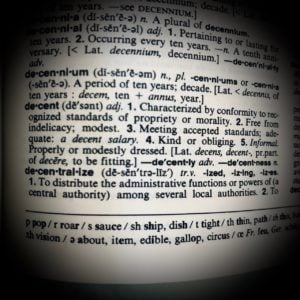 Hedera Hashgraph, the “most used,” sustainable, enterprise-grade public network for the decentralized economy, reveals that the Indian Institutes of Technology Madras (IITM) has become the latest member of its Governing Council.
Hedera Hashgraph, the “most used,” sustainable, enterprise-grade public network for the decentralized economy, reveals that the Indian Institutes of Technology Madras (IITM) has become the latest member of its Governing Council.
The technology-focused University has joined a rotating Council of “up to” 39 international organizations that are from “a diverse array of industries and geographies, and each runs an initial network node that enables the decentralized governance model for the Hedera public ledger,” according to an update shared with Crowdfund Insider.
As a newly appointed member of the Hedera Governing Council, IITM will be working cooperatively with the Hedera ecosystem to further its technical education, research, and innovation offerings in distributed ledger technology (DLT).
IITM will also be using its term on the Hedera Council to enhance its R&D initiatives in the DLT sector, “testing use cases leveraging key services, such as the Hedera Consensus Service and the Hedera Token Service.”
Professor Prabhu Rajagopal, who leads Remote Diagnostics at IITM’s Center for Nondestructive Evaluation (CNDE), stated:
“We have identified enormous potential in Hedera Hashgraph, already the most used, and sustainable public ledgers on the market today, and we look forward to utilising the Hedera Consensus and Token Services to study potentially groundbreaking new use cases. IITM is recognised globally for pioneering work in areas such as renewable energy, telecommunications, nondestructive testing, biomedicine, healthcare and information and communication technologies (ICT), and its renowned tech alumni community.”
He added:
“With this network, we aim to bring substantial value to the Hedera Governing Council, utilizing our expertise in practical and innovative technological solutions to assist other council members and organizations in use case development. I am particularly enthused by the opportunity to test and scale our solutions in blockchain-backed information systems in healthcare, industry and digital media.”
As noted in a release, Professor Rajagopal’s group is mainly interested in the securitization of large scale digital data-sets “arising from sensor logs, which was the initial catalyst for their interest in blockchain and distributed ledgers.”
IITM’s appointment to the Hedera Governing Council comes shortly after the London School of Economics & Political Science (LSE), which is one of the United Kingdom’s leading academic institutions, confirmed its membership to the Hedera Governing Council, “bolstering the council’s role within academia.”
Established in 1956, IITs (at Madras and several other Indian cities) “count Google CEO Sundar Pichai and former president of the SoftBank Group, Nikesh Arora, among its alumni.”
Vinod Khosla, co-founder of Sun Microsystems and founder of Khosla Ventures, noted:
“The IITs probably are the hardest school in the world to get into, to the best of my knowledge”.
Regarded as one of the leading universities globally, IIT has established research expertise in DLT, “served as an incubator for India’s National Blockchain Project, and most recently, developed ‘BlockTrack’, a first-of-its-kind blockchain-based secure medical data and information exchange mobile application for use by both medical providers and patients.”
BlockTrack aims to “securely digitize healthcare information systems while protecting sensitive medical records by decentralizing the control and ownership of patient data, and is currently being field-tested at IIT Madras Institute Hospital.”
Mance Harmon, CEO and Co-founder of Hedera Hashgraph, remarked:
“The addition of IITM to the Hedera Governing Council is a significant and exciting development for the Hedera community and the wider DLT industry. Throughout the history of IIT, its alumni and academic staff have made substantial contributions to groundbreaking research in technology and innovation.”
Mance added that this brings great value to the Hedera Council and will guide the development of important use-cases built on the Hedera network. He also noted that “combined with the appointment of LSE, and the ongoing work being done by University College London (UCL), this marks another remarkable step forward for the relationship between academia and the decentralized economy.”

